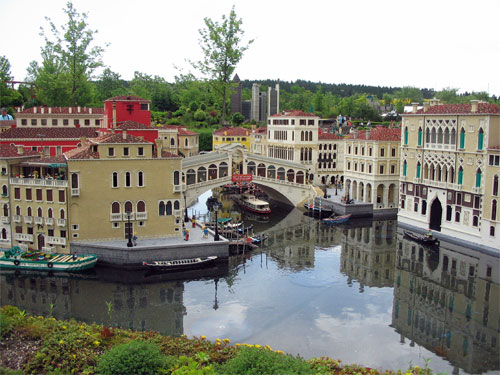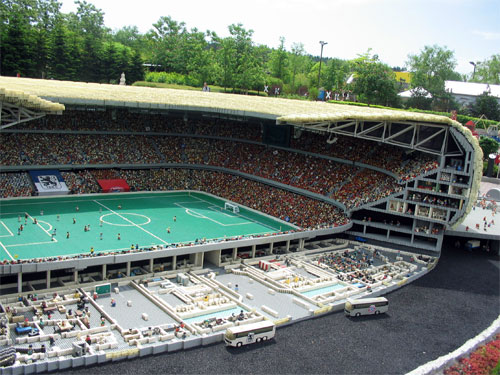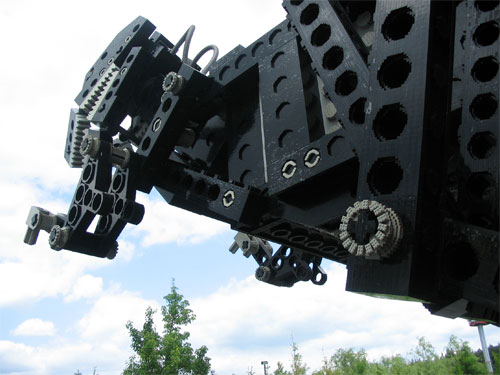 If you read some of the posts here you might have guessed that I try to be a rational, skeptical, scientifically minded individual. Somebody who has never been to college but realized he probably should have been. This ‘rational’ streak of my life isn’t very old, though. Up until about ten years ago I was into paranormal-UFO-alien-conspiracy stuff – big time. I didn’t exactly know what I was believing. Everything, I guess. Of course that was also the time when the internet started to offer easy access to all sorts of before unseen material – at least unseen by me.
If you read some of the posts here you might have guessed that I try to be a rational, skeptical, scientifically minded individual. Somebody who has never been to college but realized he probably should have been. This ‘rational’ streak of my life isn’t very old, though. Up until about ten years ago I was into paranormal-UFO-alien-conspiracy stuff – big time. I didn’t exactly know what I was believing. Everything, I guess. Of course that was also the time when the internet started to offer easy access to all sorts of before unseen material – at least unseen by me.
I was raised Protestant. In Germany there were really only two confessions at that time: Catholics and Protestants. Other than the obligatory go-to-bed prayer, school mandated weekly church visits (can you believe that?), and Confirmation at age 14 we were pretty much left alone by our parents’ religion, although my mother was a bit shocked when at age 15 I choose to opt out of religion in school. After I left school and moved out from home religion lost any meaning for me whatsoever. But I slowly started to get interested in ‘the other side’. UFO stories made my ears perk up. When I read my first book about past-life regression I was hooked. In Germany it was still pretty hard to find material to read about all these topics. In the mid 1980’s I read my first Seth book by Jane Roberts. Couldn’t get enough of these.
After moving to the US in 1988 I found there were huge bookstores with hundreds of books covering everything supernatural and metaphysical. We had book stores in Germany but nothing in comparison. Maybe it’s because I am German, but “if it’s in a book,” I thought, “it must be true.” While I was still consuming Science Fiction at an alarming rate my exposure to any real science all but disappeared.
My wife must have thought I was nuts when I was telling her all the strange and outlandish stuff I was learning from this strange literature .
Then, as I mentioned, came the internet. The MJ12 papers. Area 51. Roswell. Conspiracies. When I read Robert Anton Wilson’s Illuminatus! books there was a slight nudge to becoming a bit skeptical. And then I came across David_Icke’s “…And The Truth Shall Set You Free” and the whole thing blew up in my face. In this whole fabric of UFO reports, conspiracies, alternative realities, whatever, everybody was claiming they were correct and everybody else was wrong. The one claim they all had in common was that scientists were close-minded and didn’t want to hear anything about their lofty claims. It took another year or so for me to make the connection: Why didn’t I believe in a biblical god? Why, again, did I think following religious leaders blindly is foolish? Then I realized that most if not all of these fringe beliefs were just that: beliefs with no substantial proof, based on an individual experience or, even worse, a deliberate deception. Just the same as religious ideology – and I didn’t believe in that. And then all of a sudden I was free!
Another fact had kept bothering me all through my paranormal phase:
I was so eager to experience any supernatural phenomenon, so open to see a UFO, see a ghost or develop my own psychic abilities – but nothing ever happened. I guess I don’t have the ‘gene’.
In short order I became a skeptic. Subscribed to Skeptical Inquirer, started listening to skeptical podcasts and reading science books. It was kinda cool to slowly find out that there were many people like me even though somehow in most personal conversations I just stayed away from the topic of skepticism and atheism – just to be polite.
Then people like Christopher Hitchens, Sam Harris and Richard Dawkins published books about atheism. And they didn’t really take care not to step on anybody’s toes. Harris asks, why can’t people who act on their religious believes held as accountable just as anybody else? Dawkins’ “The God Delusion” accuses parents of indoctrinating their children into their religion and damaging them for life. These authors were expressing what I had been thinking for many years. For a few years I became really mad. Partially that was due to a government which tried to play the religious card whenever possible. Not a Christian? Then you’re not one of us. Makes you feel very welcome indeed.
I have some friends who are Mormon. At least I think so. They never told me. I never asked. Although there were times when I almost did because I was curious. They never tried to convince me to become Mormon. They are very cool, creative people. They show up on time, don’t get drunk on the gig, don’t yell at me. They didn’t ask me if I was an Atheist when I called them for a gig. Who am I to tell them that their belief is ……what? Stupid? Irrational? Old fashioned? Maybe their belief system doesn’t really do that much. They would probably be decent folks without it.
So, then, are there two sorts of religion? The religion people carry inside? Their ‘personal’ belief. Can’t really share it because it may well have been inspired or evolved (snicker) from the other form of religion: the dogmatic sort, the rules imposed from outside for no good reason except that a pope, priest or pastor somehow extracted them from the Bible, the Koran or some other historic text. The kind of religion that the people in high places want to keep the same, absolute, a constant, untouchable. I suppose that the religion people display when they are together in church is not exactly the same thing they feel when they are by themselves.
As I was slowly becoming a skeptic I noticed how hard it was to let go of irrational believes – and it’s incredible how much stuff we accept as real and true that’s actually total bogus and yet it influences our lives in profound ways. Here’s a personal example:
When I was 16 and my guitar playing was slowly becoming presentable to a public I realized that it was also developing into something special: Through it I was able to express my individuality. More importantly, it became my ‘pie-in-the-sky’. If only I could become so good and write so many tunes, etc, one day I would be successful. People would know about me and my music and it would have financial rewards. This became my carrot and my stick. For many years it was almost inconsequential whether my pie-in-the-sky would ever materialize. I can easily imagine that for a religious person Jesus and going to heaven could be their pie-in-the-sky. While my pie essentially came down to earth some years ago – when I noticed that I am playing gigs for people who come to see me play, some buy my CDs with my music on them, and while I am not famous I am well known and recognized locally – the religious ‘pie’ ideally stays in heaven until you die. At least from the outside this looks like a pretty effective carrot (although with many religions it seems more of a stick.)
So, what then am I trying to say?
I just said that I don’t believe in a god – Christian or otherwise. But I also know from first-hand experience that I won’t practice my guitar without having something to practice for. It helps the motivation imagining some huge gig in front of thousands of people – even though that gig will probably never become reality. Hell (no pun intended), it’s next to impossible to get up in the morning without having somewhere to go to or something worthwhile to do. And not to defend organized religion, but they usually do offer you one heck of a benefits package even though I think it’s all made up.
As always, instead of black and white it’s a spectrum of finely shaded colors what people believe in and why. Just don’t come to my door and tell me that your god loves me because he might be a little disappointed.
 Let’s face it:
Let’s face it:























